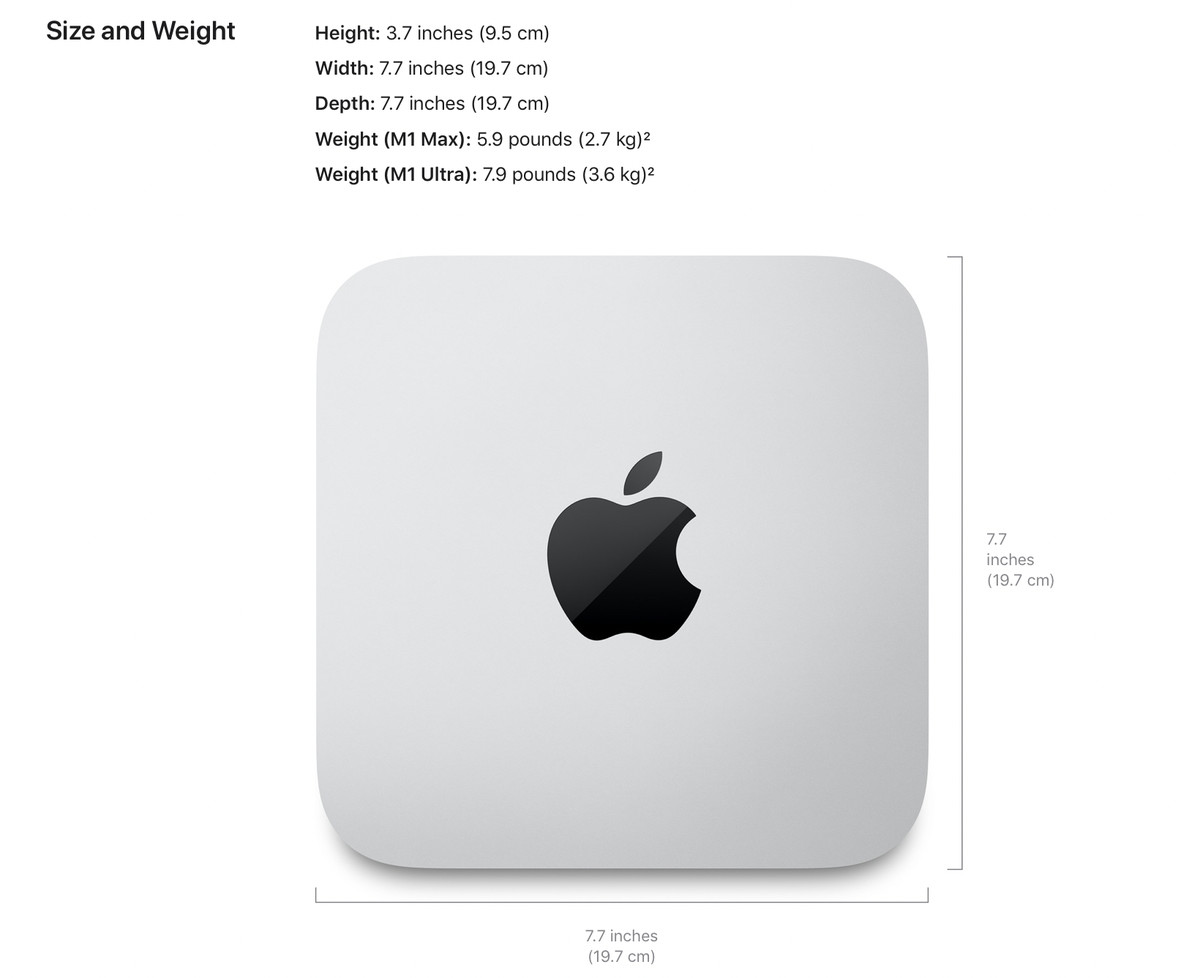When Apple published the spec sheets for its new Mac Studio computer, people were quick to voice their confusion about why on earth the version with the new M1 Ultra chip weighed a whole two pounds (almost a kilogram) more than the version with the M1 Max. While the M1 Ultra is basically two M1 Maxes stuck together, that’s not the reason for the weight difference, according to Apple. It turns out, it comes down to the metal used in the computer’s thermal systems.
Here’s what Apple spokesperson Alex Bender said in an email to The Verge:
They have the same 370W power supply. The additional weight is due to M1 Ultra having a larger copper thermal module, whereas M1 Max has an aluminum heatsink.

So there we go. Mystery solved. It’s not that the M1 Ultra required a beefier power supply (which isn’t an unfair assumption) or that the fans are powerful enough to push down the scale, as one Twitter user joked. It’s that it’s got a heavier metal — at room temperature, copper is 8.96 grams per cubic centimeter, whereas aluminum is a svelte 2.70 grams. That means that, if the design of the heatsinks is exactly the same, the copper version would be over three times heavier than the aluminum one.
It is worth noting that copper isn’t automatically better than aluminum. It’s really all about design, as we learned when Sony replaced the PS5’s heatsink with a smaller, lighter one, without accruing a notable performance hit. We’ll likely have to wait for someone to tear the two versions of the computer down to see if there are any design changes in the Ultra version, but for now, it seems like the M1 Ultra’s added heft can be chalked up to material choices.
Update March 9th 3:48PM ET: Added attribution to Apple statement in line with The Verge’s background policy.